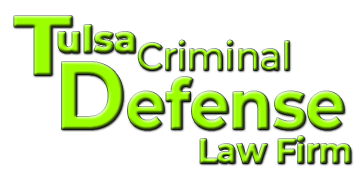 Federal internet crimes, or cybercrimes, are on the rise. These types of crimes vary depending on the person or entity that is being harmed in the process, but they all have the internet in common. Here are some of the more common federal internet crimes and their punishments.
Federal internet crimes, or cybercrimes, are on the rise. These types of crimes vary depending on the person or entity that is being harmed in the process, but they all have the internet in common. Here are some of the more common federal internet crimes and their punishments.
Computer Hacking
Computer hacking is a growing crime. It is legally defined under the Computer Fraud and Abuse Act as knowingly accessing a protected computer without authorization or exceeding one’s authorization and outlaws:
- computer trespass, or hacking, into a government computer, especially those computers which house sensitive governmental information:
- computer trespass, or hacking, to obtain governmental, credit, or financial information, or information contained in a computer;
- damaging either a federally owned computer or a computer used in conjunction with interstate commerce — this could be inserting a virus or other malware or any other form of cyber-attack;
- accessing a protected computer with the intent to defraud or obtain anything of value;
- transmitting a program, information, code, or command that intentionally or recklessly causes damage to a protected computer, or other damages or loss;
- trafficking in government-owned computer passwords, when those computers are used in or affect interstate commerce; or
- accessing a computer to commit espionage.
18 US Code § 1030
Penalties
Cyber crimes are a relatively new area of the law. Penalties can range from fines and prison terms from as low as a year for a simple cyber trespass to life in prison if death results from intentional damage.
Other penalties range from 5 to 10 years, depending on the kind of hacking involved and the amount of damage. Repeat offenders can be subject to up to 20 years in federal prison.
In most cases, you will be charged with a felony in Tulsa.
For many offenders, the issue of the lack of authorized access is straightforward. A teenager hacking into a government agency mainframe to insert malware has no authorized access.
However, this issue becomes more thorny when a person has authorized access for some purposes but not for others. Arguably, exceeding one’s authority in these cases is proven by showing that a person has limited authority rather than absolute, and how that person specifically exceeded his or her limited authority.
The most litigated area of authority concerns itself with the person who has the authority to access a computer for some purposes but not for others. When a person is expressly forbidden from accessing a computer for a specified purpose, the prosecution’s task is fairly straightforward. It is more complicated when a person accesses a computer against their government’s or employer’s interests. This area of the law is muddy and a good Tulsa criminal attorney can often craft a strong defense in these cases.
Identity Theft
Identity theft is a growing problem. This crime becomes a computer crime when a computer is used to access the private information of another or in connection with the sale or dissemination of another, usually for profit. For example, when a person posts the Social Security numbers of others on a site where they can be sold, a computer may be involved in first discovering the Social Security numbers and certainly in their sale. An offender may be sentenced up to 15 years in some cases. 18 US Code § 1028
Other Federal Internet Crimes
Other areas of cybercrime include child pornography passed over the internet. It is against federal law to produce, distribute, receive, or possess any child pornography. It is also illegal under federal law to knowingly search for and view child pornography. 18 US Code § 2252
The internet is almost always involved in child pornography cases. Therefore, the computer is always the subject of a search warrant in this type of investigation.
Penalties are harsh. Knowingly possessing child pornography can be lead to prison sentences from 10 to 20 years depending on the age of the child. A person who is convicted of distributing or receiving child pornography faces a prison term from 5 to 20 years.
All of these federal crimes carry harsh penalties. And the time to obtain counsel is as soon as you realize that you may be under federal indictment in Tulsa.
Initial Consultation: Tulsa Federal Criminal Lawyers
Get the help you need. It’s time to retain a Tulsa criminal defense lawyer who is knowledgeable regarding federal law and procedure and who will look out for your legal interests. Contact a Tulsa criminal attorney at Tulsa Criminal Defense Law Firm today for a initial, confidential consultation.
A Tulsa defense attorney can advise you on how the process works and offer answers to your specific questions. To begin your low-cost initial strategy session, call 918-256-3400 now.
